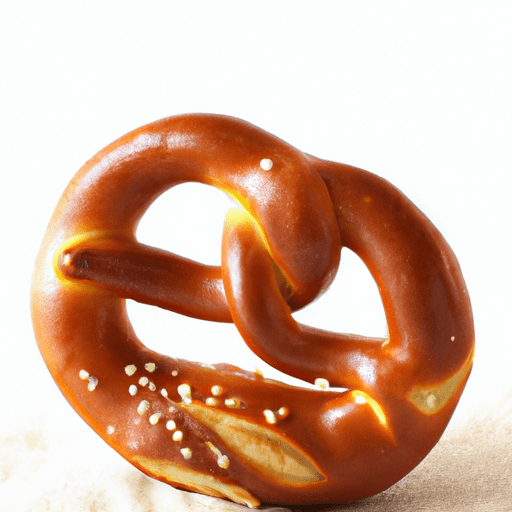The Deliciously Versatile Pretzel Bun: A Tasty Twist to Your Meals
If you’ve ever savored a soft and chewy pretzel, you’ll understand the sheer joy that comes from sinking your teeth into a pretzel bun. These delicious buns beautifully embody the signature flavors and textures of traditional pretzels, making them a delightful addition to any meal. In this blog post, we will explore the unique taste, common uses in cooking, nutritional value, and uncover some interesting history and facts about this versatile bun.
The Taste of a Pretzel Bun
Pretzel buns offer a delightful combination of flavors that sets them apart from regular burger buns or dinner rolls. Their distinctive taste is a result of their unique preparation method, which involves a quick dip in an alkaline solution before baking. This process gives the buns their characteristic deep golden-brown color, coveted chewy texture, and a hint of malty sweetness.
Common Uses in Cooking
The pretzel bun’s versatility makes it a popular choice in various culinary creations. Its soft and chewy texture pairs perfectly with a wide range of fillings and toppings, making it ideal for sandwiches, burgers, sliders, and even hot dogs. Whether you’re savoring a juicy bacon cheeseburger, a tender pulled pork sandwich, or a classic veggie burger, a pretzel bun will elevate the overall flavor profile of your creation.
Beyond sandwiches, pretzel buns can be creatively used as the base for sliders at your next party or as a side accompaniment to hearty soups and stews. Toasted and buttered, they make a delicious accompaniment to charcuterie boards and can even be enjoyed on their own as a tasty snack.
Nutritional Value
When it comes to nutritional value, pretzel buns offer a decent balance of carbohydrates, protein, and essential vitamins. While it’s important to note that the exact nutritional composition may vary among brands and recipes, a typical pretzel bun contains around 220-250 calories, 1-2 grams of fat, 45-50 grams of carbohydrates, and 8-10 grams of protein. They also provide essential minerals like calcium, iron, and potassium.
Historical Significance and Fun Facts
The origins of pretzels can be traced back to Europe, particularly to Germany, where they were initially known as “bretzels.” Originally, these twisted and knotted treats were associated with Christian Lent, as the unique shape was thought to resemble children’s arms folded in prayer. Over time, their popularity grew, and pretzels made their way into daily life, becoming a staple in German bakeries by the 12th century.
Interestingly, pretzel buns have gained popularity in recent decades as a result of the growing artisanal bread movement. Craft bakeries and food enthusiasts have rediscovered the joy of this humble yet distinct bun, leading to its widespread availability in local markets and eateries.
Try Making Your Own Pretzel Buns!
If you’re feeling inspired to embark on a homemade culinary adventure, why not try making your own pretzel buns? While it may require a bit of effort, the rewarding taste and the satisfaction of creating your own pretzel buns are well worth it. Numerous recipes are available online, guiding you through the process step by step.
So, next time you’re planning a cookout or simply craving a twist to your regular sandwich routine, consider reaching for a pretzel bun. Its unique flavor, versatile nature, and engaging history make it the perfect accompaniment to elevate your meals. Embrace the deliciousness and embark on a culinary journey that will be deeply satisfying for both your taste buds and your enthusiasm for cooking.
Note: The nutritional information provided is approximate and can vary based on different brand variations and recipes.
Interesting Facts about Pretzel Buns:
Origin: Pretzel buns, also known as pretzel rolls, originated in Germany. They are a variation of traditional pretzels, which have been enjoyed since the early Middle Ages.
Common Uses: Pretzel buns are commonly used as an alternative to regular burger buns or sandwich rolls. Their chewy texture and distinct flavor add a unique twist to sandwiches, burgers, sliders, and hot dogs.
Nutritional Benefits: Pretzel buns are a good source of carbohydrates, providing energy necessary for daily activities. However, it is important to note that they tend to be higher in calories and sodium compared to regular buns due to their special preparation method and sprinkling of coarse salt.
Unique Properties: What sets pretzel buns apart is their characteristic dark amber color, firm outer crust, and soft interior. This distinctive appearance and texture are achieved through a process that involves boiling the buns in an alkaline solution, typically a mixture of water and baking soda, before baking them.
Historical Significance: Pretzel buns have a long history and cultural significance in Germany and other European countries. Traditional pretzels were often associated with religious and ceremonial events. They were even shaped to resemble crossed arms to symbolize prayer or hands folded in prayer.
Remember to consider individual dietary needs and preferences when incorporating pretzel buns or any food into your diet.




Use the share button below if you liked it.
It makes me smile, when I see it.